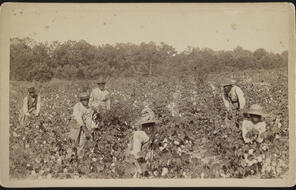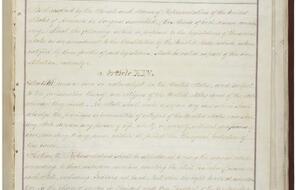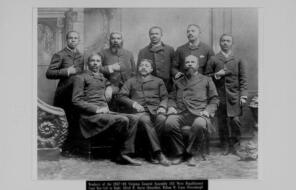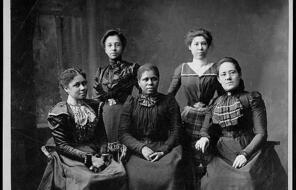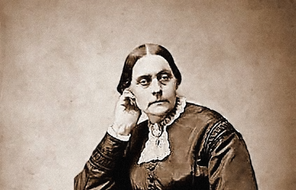A Wife's Lament
At a Glance
Language
English — USSubject
- History
- Social Studies
- Democracy & Civic Engagement
By the middle of the twentieth century, there was almost no other way for black South African men and women to earn a living other than to work for white South Africans. While whites needed this labor, they also wanted to control it, so strict regulations were put in place. Each black South African man was required to carry a “passbook” showing where he was allowed to work and to live. As for where black South Africans could work and live, so convoluted was the passbook bureaucracy that few black South Africans were able keep their records current, providing authorities with an excuse to detain people at will. Anyone living in a black township on the outskirts of a white city who did not possess appropriate papers was effectively treated as an illegal alien. Each year, the government arrested a quarter of a million black South Africans. Some were imprisoned, others paid large fines, and still others were deported to distant Bantustans.
In the 1950s, the government extended pass laws to black South African women, an act that had a tragic impact on the lives of tens of thousands of families who were not allowed to live together. Only a few black South African women with formal employment, plus the right kind of passes, could live legally with their husbands outside the designated African homelands, known as Bantustans. If the women did not have the right passes, they were forced to remain far away in the Bantustans, raising their children alone and eking out a living from the land while their husbands left to work for whites on farms or in the mines. Apartheid had traumatizing, painful effects that specifically haunted black South African women.
The document below is an excerpt from an interview conducted in the 1970s with an abandoned wife from Ilinge, who lived in the Transkei Bantustan, over 500 miles from Cape Town, where her husband was working.
Marriage is not worthwhile for us black women. It traps us. Men are having it all right in town with their girl friends and the money, while we must keep home on empty pockets and empty promises. . . . We feel lonely in this desolate place where so many of our husbands must leave to find work, and stay away all year, sometimes many years. We have pity for our husbands. We know why they must take town girls—men are men—and we also know why they want us to stay home, to keep a home for him and to make a place for his children because we have no rights for a place in the cities. . . . We do not want to hear about it, we do not want to talk about it, because it is wrong, and it is hurtful, very hurtful—how we are forced to give our husbands to other women, sometimes our very own sisters.
This is how it happens. I do not hear from my husband for many months. The money has stopped coming, even when I cry for it, it does not come. My children are hungry. No food. No money. My neighbours lend me money to go to Cape Town to look for my husband. It is a long way. I am tired. I am hungry. I am shown the way to the place where my husband lives. It is a men’s hostel, a big grey building . . . I hold my child close to me. I search for my husband. His brother comes to me. My husband is living elsewhere, I am told. . . . I sleep on the floor until my husband arrives. He is not pleased to see me. He is angry, embarrassed, he looks away but eventually he tells me about this other woman. She is a domestic servant who “lives” in. She has a room in her madam’s house. She has “rights” in Cape Town.
I can sense that it is this woman who has been eating the money that my husband should have been sending to me and our children. She is now fat and attractive. I am starved and ugly in my husband’s eyes. I have become a burden to my very own husband. 1
Connection Questions
- What statements can you make about how apartheid affected black South African family life? From this woman’s account, what did it feel like to be a black wife? What did it feel like to be a black mother?
- What action did the speaker take to overcome her destitution? What limitations did her husband face in choosing where to live, whom to live with, and whom to support?
- Who does the woman hold accountable for her situation, besides her husband? How did the laws restricting the movement of black workers affect the relationship between Africans and whites?
- 1Excerpted from Race Relations News, vol. 41 (November 1978), South African Institute of Race Relations, 5.
How to Cite This Reading
Facing History & Ourselves, “A Wife's Lament,” last updated July 31, 2018.
This reading contains text not authored by Facing History & Ourselves. See footnotes for source information.





